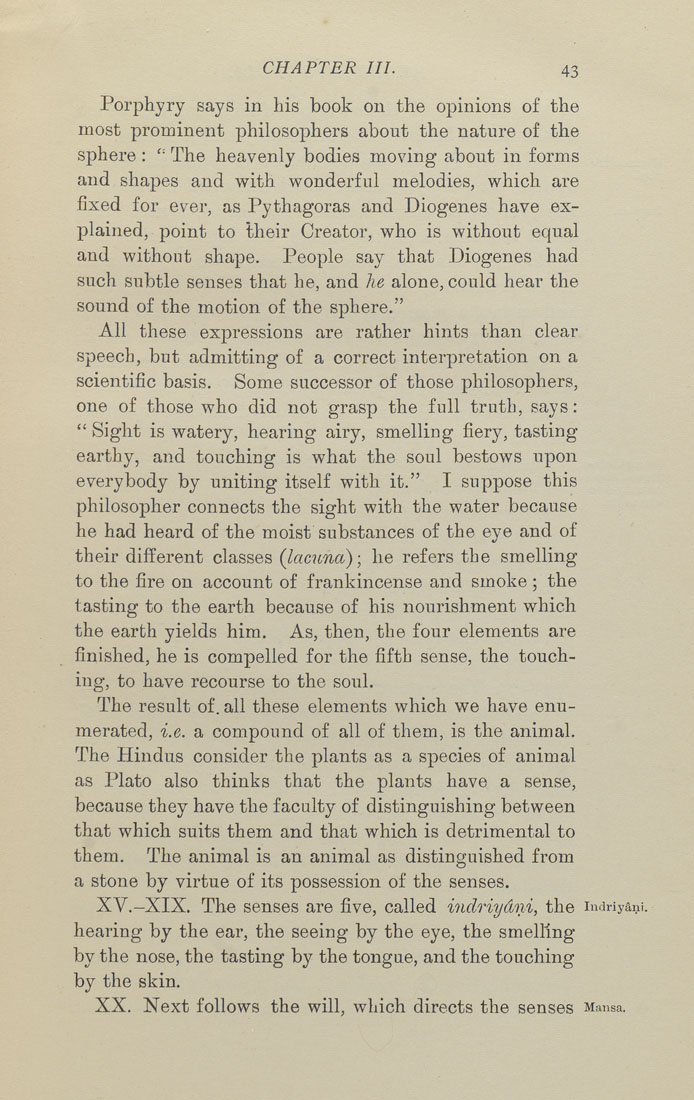Bīrūnī, Muḥammad ibn Aḥmad, Alberuni's India (v. 1)
(London : Kegan Paul, Trench, Trübner & Co., 1910.)
|
||
|
|
|
|
| Page 43 |

CHAPTER III. 43 Porphyry says in his book on the opinions of the most prominent philosophers about the nature of the sphere : " The heavenly bodies moving about in forms and shapes and with wonderful melodies, which are fixed for ever, as Pythagoras and Diogenes have ex¬ plained, point to their Creator, who is without equal and without shape. People say that Diogenes had such subtle senses that he, and he alone, could hear the sound of the motion of the sphere," All these expressions are rather hints than clear speech, but admitting of a correct interpretation on a scientific basis. Some successor of those philosophers, one of those who did not grasp the full truth, says: " Sight is watery, hearing airy, smelling fiery, tasting earthy, and touching is what the soul bestows upon everybody by uniting itself with it." I suppose this philosopher connects the sight with the water because he had heard of the moist substances of the eye and of their different classes (lacunot); he refers the smelling to the fire on account of frankincense and smoke ; the tasting to the earth because of his nourishment which the earth yields him. As, then, the four elements are finished, he is compelled for the fifth sense, the touch¬ ing, to have recourse to the soul. The result of. all these elements which we have enu¬ merated, i.e. a compound of all of them, is the animal. The Hindus consider the plants as a species of animal as Plato also thinks that the plants have a sense, because they have the faculty of distinguishing between that which suits them and that which is detrimental to them. The animal is an animal as distinguished from a stone by virtue of its possession of the senses, XV.-XIX. The senses are five, called indriydni, the indriyani, hearing by the ear, the seeing by the eye, the smelling by the nose, the tasting by the tongue, and the touching by the skin. XX. Next follows the will, which directs the senses Mansa. |
| Page 43 |







